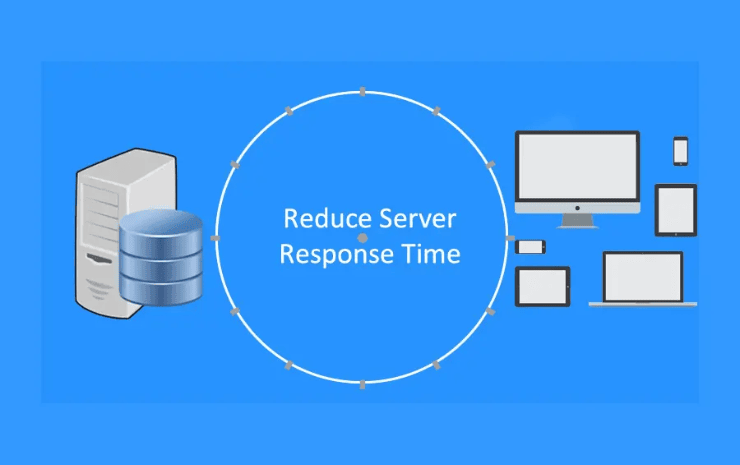Introduction
Building a website is an exciting venture, but the success of your online presence heavily relies on choosing the right web hosting provider. With a plethora of options available, it’s crucial to understand your website’s needs and the type of work required to make an informed decision. This guide aims to walk you through the process of selecting the most suitable host for your website, taking into consideration factors such as website type, performance, security, scalability, and budget.
1. Understanding Your Website Needs to find the best web hosting
1.1 Identifying Your Website Type:
Before diving into the sea of hosting options, determine the purpose and type of your website. Is it a blog, an e-commerce site, a portfolio, or a complex web application? Each type has unique hosting requirements.
1.2 Estimating Traffic and Resource Requirements:
Anticipate the level of traffic your website is likely to receive. A small blog may require less server power than a high-traffic e-commerce site. Understand your resource needs, including storage, RAM, and CPU.
1.3 Determining Technical Requirements:
Consider the technical aspects your website demands. For instance, if you’re running a WordPress site, compatibility with PHP and MySQL is essential. If you’re developing a custom application, ensure the server supports your required programming languages and frameworks.
2. Types of Web Hosting

2.1 Shared Hosting:
Ideal for small websites with low to moderate traffic. Multiple websites share the same server resources, making it cost-effective but potentially less performant.
2.2 Virtual Private Server (VPS) Hosting:
Offers a dedicated portion of a server, providing more control and better performance than shared hosting. Suitable for growing websites with moderate traffic.
2.3 Dedicated Server Hosting:
Provides an entire server exclusively for your website. Ideal for large, high-traffic websites or applications requiring extensive resources.
2.4 Cloud Hosting:
Utilizes a network of interconnected servers to distribute resources. Offers scalability and high availability, making it suitable for websites with unpredictable traffic.
2.5 Managed WordPress Hosting:
Specifically tailored for WordPress sites, offering optimized performance, security, and automated updates.
3. Performance Considerations

3.1 Uptime and Reliability:
Choose a host with a strong track record for uptime. Aim for 99.9% or higher to ensure your website is accessible to visitors at all times.
3.2 Server Response Time:
Opt for a host with low server response times. Faster response times contribute to a better user experience and improved search engine rankings.
3.3 Bandwidth and Data Transfer Limits:
Be mindful of bandwidth and data transfer limits. Ensure your hosting plan accommodates your expected traffic without incurring additional charges.
4. Security Measures

4.1 SSL Certificates:
Prioritize hosts that offer free SSL certificates. SSL encryption is crucial for securing data transmitted between your website and users.
4.2 Firewalls and DDoS Protection:
Look for hosts with robust firewalls and DDoS protection to safeguard your website from malicious attacks.
4.3 Regular Backups:
Choose a host that performs regular backups of your website data. This ensures you can quickly restore your site in the event of data loss or a security incident.
4.4 Security Audits and Monitoring:
Opt for hosts that conduct regular security audits and provide monitoring services to promptly detect and address potential threats.
5. Scalability and Future-Proofing

5.1 Room for Growth:
Select a hosting company that allows for easy scalability as your website grows. This ensures your hosting plan can adapt to increased traffic and resource requirements.
5.2 Easy Upgrades:
Ensure the hosting provider offers seamless upgrade options. This prevents the need for migration when your website outgrows its current hosting plan.
5.3 Traffic Handling Capabilities:
Consider the host’s ability to handle traffic spikes. Choose a host with scalable infrastructure to accommodate sudden increases in website visitors.
6. User-Friendly Control Panel
6.1 cPanel:
A popular and user-friendly control panel, cPanel simplifies server management tasks, making it an excellent choice for beginners and experienced users alike.
6.2 Plesk:
Similar to cPanel, Plesk offers a user-friendly interface with additional features. It’s a good alternative for those who prefer diversity in control panel options.
6.3 Custom Control Panels:
Some hosts provide custom control panels. Ensure they are intuitive and offer the necessary functionalities for your website management needs.
7. Customer Support and Service Level Agreements (SLAs)

7.1 24/7 Technical Support:
Choose a host with 24/7 technical support to address issues promptly, regardless of the time zone.
7.2 Response Time:
Look for hosts with guaranteed response times in their SLAs. Faster response times mean quicker issue resolution.
7.3 SLAs and Guarantees:
Carefully review the host’s Service Level Agreement (SLA). Look for guarantees regarding uptime, response times, and compensation for service interruptions. A robust SLA reflects the provider’s commitment to service quality.
8. Budget Considerations
8.1 Balancing Features and Cost:
Assess your budget constraints and find a hosting plan that strikes a balance between features and cost. Avoid choosing the cheapest option without evaluating the included features and limitations.
8.2 Hidden Fees and Renewal Costs:
Be wary of hidden fees that may not be apparent in the initial pricing. Additionally, consider the renewal costs, as some providers offer significant discounts for the first term but increase rates upon renewal.
8.3 Money-Back Guarantees:
Opt for hosts that provide money-back guarantees. This ensures you have a safety net in case the chosen hosting service doesn’t meet your expectations.
9. Popular Hosting Providers and Their Specialties

9.1 Bluehost:
Known for its user-friendly interface and excellent customer support, Bluehost is a versatile option suitable for small to medium-sized websites. It offers shared hosting, VPS hosting, and dedicated server solutions.
9.2 SiteGround:
SiteGround is renowned for its top-notch customer support and performance optimization for various platforms, including WordPress. It’s an excellent choice for those seeking managed WordPress hosting.
9.3 HostGator:
HostGator is a reliable and affordable option with a range of hosting plans. It caters to different needs, from shared hosting for beginners to dedicated servers for high-traffic websites.
9.4 AWS (Amazon Web Services):
Amazon Web Services is a cloud computing giant offering scalable and reliable cloud hosting solutions. It’s suitable for enterprises and businesses with complex infrastructure needs.
9.5 DigitalOcean:
DigitalOcean is a cloud infrastructure provider known for its simplicity and developer-friendly environment. It’s an excellent choice for startups and developers looking for scalable cloud solutions.
9.6 Google Cloud web hosting:
powered by Google’s robust infrastructure, offers unparalleled scalability and performance for businesses of all sizes. With a comprehensive suite of cloud services, it’s an ideal choice for those seeking a reliable and flexible hosting solution.
10. Steps to Choose the Right Host
10.1 Evaluate Your Requirements:
Take the time to thoroughly assess your website’s needs, considering factors such as type, expected traffic, and technical requirements.
10.2 Research and Compare Hosting Plans:
Research the hosting plans offered by various providers. Compare features, performance, and pricing to identify the plans that align with your requirements.
10.3 Read Customer Reviews:
Browse customer reviews to gain insights into the experiences of others with the hosting providers you’re considering. Look for feedback on customer support, performance, and reliability.
10.4 Test Customer Support:
Before committing to a hosting provider, engage with their customer support. Ask questions, evaluate response times, and ensure they can address your concerns effectively.
10.5 Check for Money-Back Guarantees:
Confirm that the hosting provider offers a money-back guarantee. This provides an extra layer of security in case you encounter unforeseen issues after signing up.
If desired, the consulting team at Dgisign Agency is prepared to offer guidance in selecting the optimal hosting solution tailored to your website’s requirements.
11. Conclusion
In conclusion, choosing the right web hosting for your website is a pivotal decision that can significantly impact your online presence. By understanding your website’s needs, considering performance, security, scalability, and user-friendly features, and researching reputable hosting providers, you can make an informed decision that aligns with your goals and budget.
Remember that the hosting landscape is dynamic, and periodic reassessment of your hosting needs is crucial as your website evolves. By following the steps outlined in this guide, you’ll be well-equipped to embark on your web hosting journey with confidence, ensuring a stable and successful online presence.

